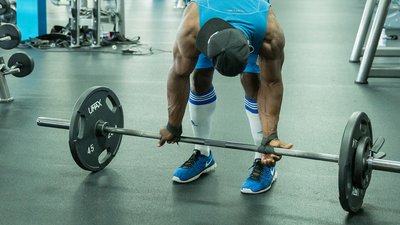Ramadan is the holiest of months in the Muslim community, and for the entire month, the faithful abstain from food and fluid intake from sunup until sundown. The idea of not eating for more than 3-4 hours may be terrifying for many lifters, but depending on your geographical location, a daily fast during Ramadan may run between 11 and 18 hours![1]
If your goal is fat loss, this time of year shouldn't throw you off course. But if you're trying to gain—or at least maintain—strength and muscle, it definitely presents a puzzle. Here's how to optimize your nutrition and training whether you're dieting or bulking.
Fasting And Fat Loss
Want a recipe for fat loss that can't be beat? Pair the daily fasting of Ramadan with an almost inevitable caloric deficit, and prepare to lose.
The fact that you have significantly less time makes it mighty challenging to overeat, although it's still possible. But periodic fasting inadvertently creates a nice structure to keep your calories in check. What's more, prolonged fasting results in relatively low insulin levels, which increases the body's reliance on fat as fuel.[2] That's a winning combination for weight loss if I've ever seen one!
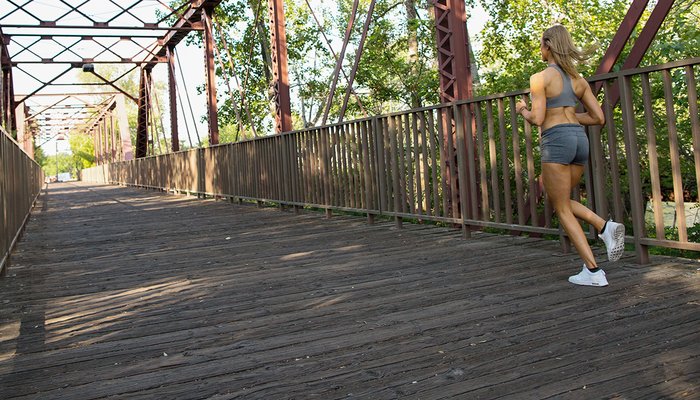
Completing your cardio before eating has been shown to be advantageous for fat loss during Ramadan.
To further enhance your fat-loss efforts, use cardio training, and time it strategically. In a study published in the Journal of Sports Sciences, researchers examined the impact of aerobic exercise on participants during Ramadan.[3] Half the subjects exercised fasted just before the feeding window, while the other half exercised four hours into their feeding window—basically in the middle of the night. Researchers found a greater decrease in body fat in those completing the aerobic exercise in a fasted state versus those completing it in the fed state.
Fasting And Muscle Building
Building muscle is hard enough. Trying to do so while fasting for 11-18 hours per day? Well, let's just say that raises the bar. During the month of Ramadan, your focus should become doing everything in your power to at least maintain muscle mass and strength. Trust me, even that will be hard to do.
To build or maintain muscle mass, you need to be consuming enough calories and simultaneously stimulating muscle growth via resistance training. A prolonged period of time without food, particularly protein, makes this goal even more challenging.
Fortunately, many studies in healthy and athletic populations have shown no significant muscle-mass loss when employing appropriate nutrition and training strategies to optimize muscle-mass maintenance.[4-6]
Here are a few strategies to keep in mind:
1. Choose Calorie-Dense Foods
To ensure you're eating enough calories, maximize your calories-per-bite ratio. To make this happen, your focus needs to shift from high-volume, low-calorie foods—e.g., chicken and asparagus—to low-volume, high-calorie foods. This isn't an excuse to throw fiber and micronutrients out the window, though. There are still plenty of nutrient-dense options to include.
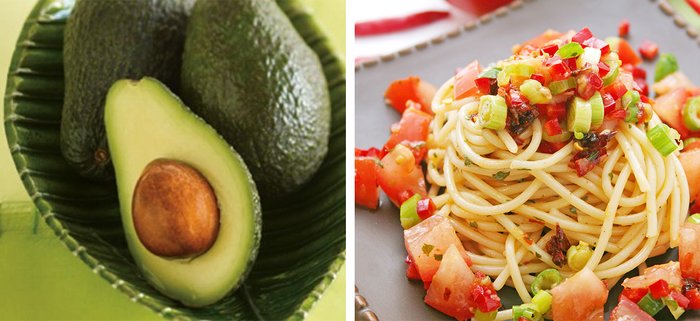
Calorie-dense foods should be a staple in your diet plan if trying to maintain weight during Ramadan.
First, stock up on healthy fats like oils, avocados, egg yolks, nuts, and nut butters, because fats provide more than twice as many calories per gram than protein and carbohydrates. Additionally, don't shy away from dense, whole-grain carbs such as oats, whole-wheat pasta, bagels, and tortillas.
2. Include Liquid Calories
To meet your caloric needs in a condensed time period, your digestive system will be working overtime. To ensure you still reach your daily goal, suck down more liquid calories in the form of shakes, smoothies, and whole-fat dairy between meals. You'll find it much easier to drink your calories rather than eat them if you're not feeling hungry.
3. End Your Feeding Time With Slow-Digesting Protein
To minimize muscle breakdown during the extended fast, end your feeding window with a slow-digesting protein, such as casein protein, just before sunrise. Casein protein digests over the course of 6-8 hours, which will help supply your muscles with a continuous source of amino acids for the hours to come. Dairy products are an excellent source. Get your share of Greek yogurt, milk, or cottage cheese.
4. Keep Lifting, Stop Running
To maintain muscle, you have to stimulate it. However, too much exercise can further increase your caloric deficit, further elevating your calorie needs and putting you at risk of muscle loss. Given the time constraints you face every day, overdoing it in the exercise department can actually work against you. And don't forget, you've got to sleep sometime!
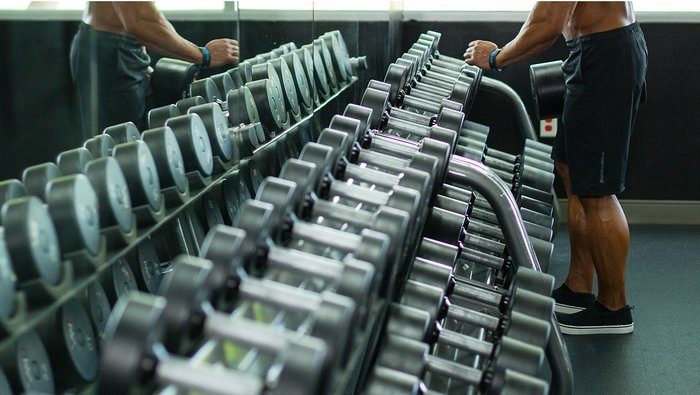
To maintain muscle mass during Ramadan, drop the cardio and focus on resistance training.
If your goal is preserving muscle mass or strength, put your focus on resistance training and take a break from aerobic exercise. Regular cardio while fasting can negatively impact muscle growth and will further create a calorie gap.
5. Don't Train Too Heavy, Too Long, or Too Hard
I'll be frank: Despite your best efforts, you probably will lose a little muscle size during Ramadan. But your strength doesn't have to take a big step down! Focus on big lifts like the bench press, overhead press, squat, and deadlift, and start each workout with lower-rep strength work before doing any higher-rep work.
Don't be a hero when it comes to weight selection—especially if you're training while fasted (which I'm not a big fan of). Focus on maintenance, keep weights at 70-80 percent of your one-rep max, and recognize that any strength or muscle gains that occur during this month are a bonus.
6. Time Your Nutrition
Yes, exercise spurs muscle growth through adaptation over a course of days, but in the short term, training is a catabolic endeavor. To minimize muscle breakdown, I recommend beginning your workout only after you get a meal in. Once the feeding period begins, start with a quick-digesting protein and carbohydrates like dried fruit and a whey protein shake before heading to the gym.
Immediately after your workout, include another round of fast-digesting protein and carbs. Depending on your sleep schedule and the rise and fall of the sun, aim for at least one large meal before bed, or two if you have time. I then recommend waking 30 minutes before sunrise to eat one last meal to hold you over as much as possible for the extended fast.
Sample Day:
- Fasting: 6:00 a.m.-7:00 p.m.
- Meal 1: 7:00 p.m.
- Workout: 7:30 p.m.-9:00 p.m.
- Meal 2: 9:00 p.m.
- Meal 3: 12:00 a.m.
- Meal 4: 5:30 a.m.
Don't Forget to Hydrate!
Just as your window for feeding is greatly diminished, so is your window for hydrating. Dehydration is bound to catch up with you at some point during your fast, so it's imperative you adequately rehydrate and drink up whenever you're able. Failure to consume enough fluids will impact both mental and physical performance, and it'll only make you hungrier.
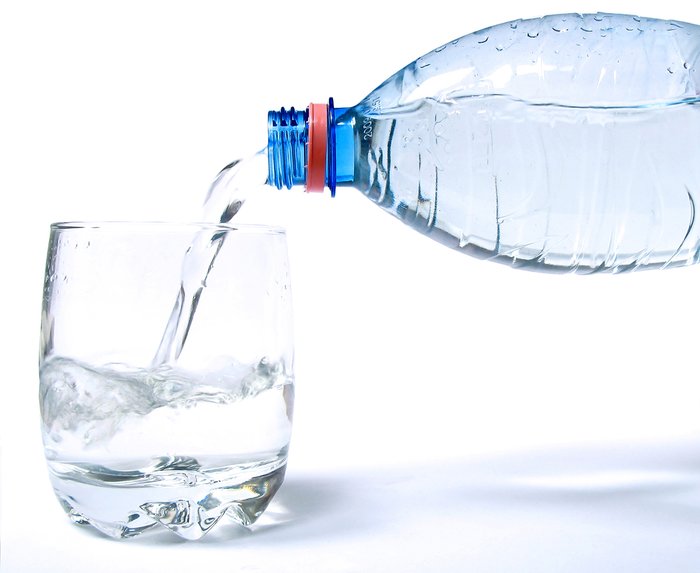
I suggest sipping fluids as soon as possible after sunset and carrying a water bottle everywhere you go during the feeding period. Your goal should be to have "light like lemonade" urine each time you use the bathroom. This is a sign of proper hydration. Additionally, just prior to dawn, drink an additional 16-24 ounces of fluids to carry you through the day as long as possible.
Is it going to be easy? No, but it's not supposed to be. Regardless of what your goals are, you will most likely be in a caloric deficit during Ramadan. These tips will help you keep your body healthy, however, and maintain as much strength and muscle as possible.
References
- Chaouachi, A., Leiper, J. B., Chtourou, H., Aziz, A. R., & Chamari, K. (2012). The effects of Ramadan intermittent fasting on athletic performance: Recommendations for the maintenance of physical fitness. Journal of Sports Sciences, 30(sup1), S53-S73.
- Wolfe, R. R., & Peters, E. J. (1987). Lipolytic response to glucose infusion in human subjects. American Journal of Physiology-Endocrinology And Metabolism, 252(2), E218-E223.
- Trabelsi, K., El Abed, K., Stannard, S. R., Jammoussi, K., Zeghal, K. M., & Hakim, A. (2012). Effects of fed-versus fasted-state aerobic training during Ramadan on body composition and some metabolic parameters in physically active men. International Journal of Sport Nutrition and Exercise Metabolism, 22(1), 11.
- Maughan, R.J., Bartagi., Z., Dvorak, J., & Leiper, J.B. (2008a). Dietary intake and body composition of football players during the holy month of Ramadan. Journal of Sports Sciences, 26, 29-38.
- Kordi, R., Abdollahi, M., Memari, A.H., Najafabadi, M.G. (2011). Investigating two different training time frames during Ramadan fasting. Asian Journal of Sports Medicine, 2, 205-210.
- Bouhlel, E., Salhi, Z., Bouhlel, H., Mdella, S., Amamou, A., Zaouali, M., . . . Shephard, R.J. (2006). Effect of Ramadan fasting on fuel oxidation during exercise in trained male rugby players. Diabetes & Metabolism: Clinical and Experimental, 32, 617-624.

